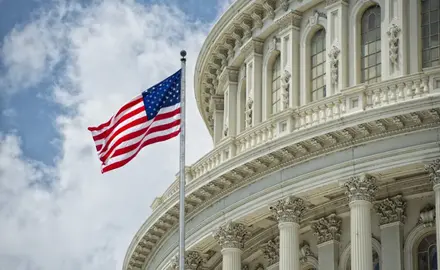The Kennedy Center for the Performing Arts recently honored comedian Conan O’Brien with the Mark Twain Prize for American Humor. The center’s new chairman and self-appointed Commissar of Culture, President Donald Trump, did not attend this first major event in our new “golden age” of American arts and culture. Seems like a missed opportunity.
But it’s probably just as well. Tyrants, as a rule, aren’t very good at laughing at themselves. And Trump is notoriously thin-skinned.
He probably wouldn’t have enjoyed John Mulaney’s suggestion that the post-purge Kennedy Center would soon be renamed “The Roy Cohn Pavilion of Big Strong Men Who Love Cats.”
O’Brien himself did not mention Trump by name. But he did have a lot to say about Twain and the principles that shaped his character and his comedy, principles that made him not only a great American humorist but also a great American.
He noted that “Twain hated bullies,” “punched up, not down” and “deeply, deeply empathized with the weak.” He said Twain was “allergic to hypocrisy” and “loathed racism.”
“Twain empathized with the powerless in America: former slaves struggling in Reconstruction, immigrant Chinese laborers in California, and European Jews fleeing antisemitism,” he noted. He added that “Twain was suspicious of populism, jingoism, imperialism, the money-obsessed mania of the Gilded Age, and any expression of mindless American might or self-importance.”
“Above all, Twain was a patriot in the best sense of the word; he loved America but knew it was deeply flawed,” O’Brien said, quoting Twain’s definition of patriotism as “supporting your country all of the time, and your government when it deserves it.”
Conan’s description of Twain made me think of another great humorist and citizen — the late Norman Lear, TV producer and founder of People For the American Way, the organization I lead.
“I am a patriot,” Lear declared on his 99th birthday, “and I will not surrender that word to those who play to our worst impulses rather than our highest ideals.”
He was awarded the Kennedy Center Honors shortly after Trump took office the first time. After Lear made clear that he would not attend a pre-event reception at Trump’s White House, Trump stayed away from the honors altogether. Now he wants to host them.
Lear, who reveled in the absurdity of the human condition, would probably have chuckled at the idea — even as he would have cried at what is being done in and to our country.
We should all be horrified that a barber was declared a terrorist by presidential edict and not given any chance to challenge that charge before being deported to a notorious prison in a foreign country.
We should all be horrified that a Fulbright scholar was abducted off the street, put into detention and threatened with expulsion, apparently because she signed an op-ed not to the president’s liking.
We should all be horrified that a French scientist was turned away at the border, possibly for just having dared to criticize Trump’s cuts to scientific research.
And that’s on top of the reckless dismantling and undermining of programs that protect people from corporate wrongdoing and help keep millions of Americans from sliding into poverty.
Trump is abusing the power of the presidency to undermine freedom, punish his personal enemies and impose his will on universities, law firms and news networks. He doesn’t seem to care how many Americans end up as collateral damage.
And when federal judges have done their jobs and required that Trump’s team abide by the law and Constitution, the president and his cronies have responded by calling for a purge of the federal courts.
It’s all deadly serious, even if Trump himself is a buffoon. Twain, who was a great satirist, could have had a field day with him.
We have our own satirists, and we should be grateful for them, because humor is an essential survival strategy for those who find themselves living under repressive regimes. Late-night humor didn’t keep Trump from being elected, and it won’t by itself stop our descent into fascism. But it can help.
Historian Ruth Ben-Ghiat notes that humor has long been used to disrupt the normalization of authoritarian cruelty and violence.
Humor, she has written, “can be a way to cope with fear and dread in circumstances where freedom has been vanquished.” And, importantly, it can validate, encourage, and inspire us to effective resistance.
So, when the news makes you unsure whether to laugh or cry, you should probably do a bit of both. It’s all part of what O’Brien called “the glorious mess of being human.”
It’s our humanity, and our commitment to defend the humanity of those around us, that can get us through the not-so-glorious mess we’re in.



